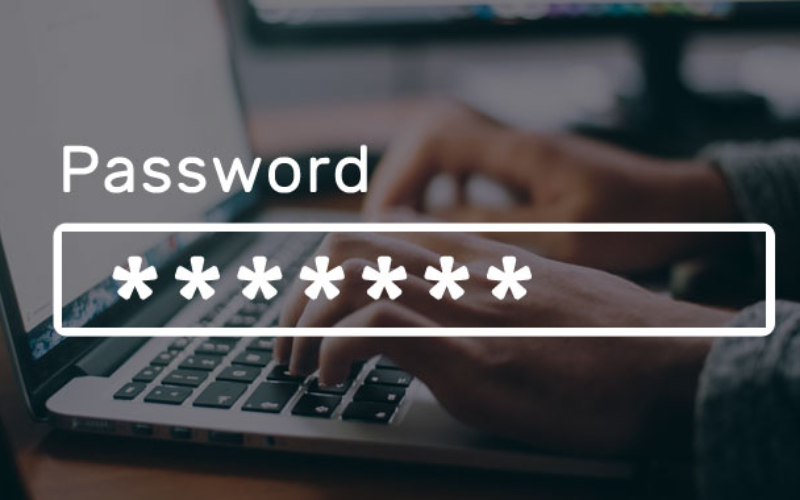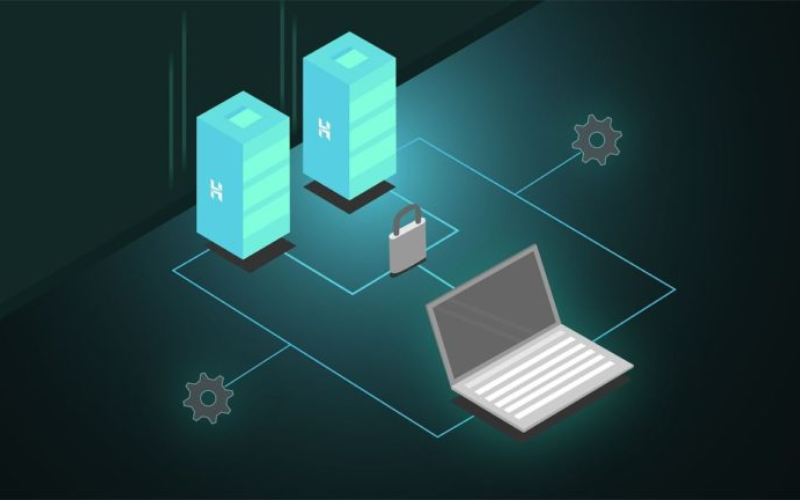Website security refers to
the procedures put in place to keep websites safe from online attacks. Website
security has become essential in today's digital world, as people and
businesses depend more and more on online platforms for information sharing,
trade, and communication.
You can use a wide range of
procedures to improve website security, such as safeguarding servers and
databases and preventing viruses, hacking, and data breaches.
Neglecting the security of
your website for business can have serious repercussions, such as financial
loss, bad reputation, legal responsibilities, and the theft of sensitive data
(such as bank records and customer information).
In severe circumstances,
security lapses may even jeopardize people's safety or cause serious service
interruptions.

In this article, we have
gathered important tips which will help you secure your website and protect
your online assets.
1.Keep
the Software up-to-date
Website security starts with
making sure your software is up to date. Software upgrades should not be
neglected as they can expose your website for business to various security
risks.
Upgrades for software, often
known as patches or security upgrades, are routinely made available by
developers to address bugs and vulnerabilities found in the program.
You can significantly reduce
the danger of a breach by making sure the operating system, plugins, content
management system, and other applications on your website are up to date.
Ignoring software upgrades
can lead to compatibility problems, decreased speed, and security risks for
your website. Malicious actors can easily take advantage of outdated software
by targeting it as a target for cyberattacks. Therefore, the first step to
improve website security is to give regular updates top attention.
2.Encrypt your data
The fundamental method of
encoding data to keep it safe from unauthorized access is known as encryption.
While encryption obscures
the content that can be understood by those not allowed to access it, it does
not by itself prevent interference with data transmission.
Encryption is the most
popular method for safeguarding private data not only while it's in transit but
also when it comes to data "at rest," such data kept in databases or
other storage devices.
When utilizing Web Services
and APIs, you should not only put in place an authentication strategy for the
entities that access them, but you should also encrypt the data that travels
via those services.
A hacker's best friend is an
open, unprotected online service and there are increasingly intelligent
algorithms that can identify these services quite easily.
🔘 Related: How to prevent cyber attacks
3.Implement Two-factor Authentication
Adding 2FA to your accounts
makes it much harder for unauthorized people to access them, even if they do
have your password. This greatly help you secure your website for business.
This extra barrier needs a
special code that is produced on the user's device and is necessary for login.
These days, you can enable
2FA on a lot of websites and platforms, and it's highly recommended. By adding
a layer of protection, this move lowers the likelihood of illegal access and
improves your website's overall security posture.
4.Implement HTTPS
Another very useful and
occasionally required preventative measure improve website security is
encryption at the service level. Usually, HTTPS (SSL, or Secure Sockets Layer)
is used for this.
A web server and a browser
can create an encrypted connection using the SSL technology. This guarantees
the privacy of the data transferred between the webserver and the browser.
Millions of websites use SSL, which is the industry standard for safeguarding
online transactions.
Furthermore, it is advisable
to utilize SSL anywhere possible because, in addition to protecting your
website for business as a whole, not using HTTPS over an SSL will prevent
numerous problems with resources like stylesheets, JavaScript, and other files
from arising.
5.Use smart and strong passwords
Your password is the only
thing standing between hackers and the authority of an admin on your website
for business. That implies that nothing can prevent hackers from using your
website's admin credentials to access your email lists and change or remove
material from your website.

So, your password needs to
be quite strong. Some passwords may appear difficult to crack and inflexible,
but they are really the most vulnerable.
Avoid using passwords that
are obvious. Although you might believe that your date of birth is a top-secret
code, it isn't. Before using more sophisticated techniques, hackers might
attempt to breach your website by using password-cracking.
Since there is a higher
chance of compromise when using the same password across multiple online
platforms, you should refrain from doing so.
It's also advisable to
update your password on a frequent basis to keep away outsiders who might know
your log-in codes through some other means.
6.Back-up your website
Frequent data backups are a
crucial part of disaster recovery plans and a great way to secure your website.
Backups serve as a
safeguard, providing a safety net in case of data loss resulting from hacks,
malfunctions, or unforeseen events. Keeping up-to-date backup copies allows you
to quickly restore your website to its previous state, which minimizes possible
downtime.
Website-specific automated
backup solutions that are easy to use provide you the freedom to plan regular
backups of the vital databases and files on your website. To avoid having your
backups compromised along with your core data, it's imperative to keep them
offshore and in a secure location.
However, backup plan is only
useful if the restoration procedure is routinely tested and confirmed. This
guarantees that when you need them most, your backups will be dependable and
operational.
7.Employ the ReCaptcha
security method
Google offers a free website
security tool called ReCaptcha that guards against fraud and misuse by hackers
and online criminals.
It's probable that you've
visited a website where you had to choose images of certain objects or complete
some basic math problems. If this sounds familiar to you, then you understand
what ReCaptcha is all about.
This risk analysis
technique's only goal is to distinguish between real people and automated
systems and is one of the simplest ways to improve website security.
Malicious codes are
programmed by hackers to take the guise of robots that infiltrate your website
and initiate destructive actions.
Malicious programs, such as
bots, will be prevented from accessing ReCaptcha sites because they are unable
to choose the pre-selected images or solve random math problems. As a result,
you'll be sure your website is protected.
8.Limit access to sensitive data
One of the most important
tactics you can use to improve website security is to manage and limit access
to sensitive data.
Insider threats, or the
misuse of access credentials by individuals within an organization, are an
increasingly serious concern.
Adopting the least privilege
(PoLP) principle is essential to reducing this danger. This principle ensures
that individuals have the minimal access required to do their duties. Adhering
to such principles is consistent with the advantages of ISO 27001.
You may reduce the risk of
data breaches and insider misuse by limiting access to sensitive information to
those who actually need it.
In order to implement these
restrictions, you should use strong access control methods like role-based
access control (RBAC) and powerful authentication procedures.
Make sure user access rights
are regularly reviewed and audited to make sure they meet business
requirements.
Removing access from
personnel who are no longer needed should be done quickly. You may strengthen
the security posture of your website for business and prevent insider threats
by following these procedures.
🕵️ Related: How to prevent bad bots on your website
9.Choose a secure web hostA crucial first step to
secure your website is choosing a secure web hosting company. Your website
depends on your hosting service, therefore it's critical that you pick a
provider that places a high priority on security.
A trustworthy web host
offers several security benefits, such as strong firewalls, watchful intrusion
detection systems, and a dedication to regular security upgrades.

A good service provider uses
extensive security measures against common threats such as DDoS attacks,
malware intrusions, and data breaches. Additionally, it will handle technical
problems quickly. For example, when the web server returns an unknown error.
In addition to technological
security measures, a secure web host offers first-rate customer service to help
you in the event of security events or issues.
10. Accept comments on your website manually
There is no doubt that as a
website owner, you want input from your users since it enhances the caliber of
the content and provides a first-rate user experience. The issue, though, is
that your website's comment areas could be the target of a lethal cyberattack.
This means that hackers can
infiltrate your website for business with dangerous programs or spam links
through the comment section in order to obtain crucial information.
So, how can you prevent
these kinds of things from happening? Easy. Don't permit direct comment posting
on your website.
In other words, approve
comments manually on your website and steer clear of automatic comment
approval.
By doing this, you'll be
able to remove any spam or dubious content from the comment box and stop any
malicious codes from entering that could start a cyberattack.
Installing anti-spam
applications or plugins, which filter questionable comments and assist you in
approving sincere feedback from your website users, is another method to
counteract harmful remarks on your website.
You can also request that
users register in order to leave comments. You won't receive automated comments
as a result, which could provide hackers with a means of accessing your
website.
Generally speaking, manual
comment approval makes sure that only real comments are posted on your website
and that any questionable ones are removed.
Conclusion
If you own a business, it’s
not enough to build a website for business and then walk away. Even though it's
much simpler than ever to create a website these days, maintaining website
security is still important.
As a result, you should take
preventative measures to improve website security and safeguard the data of
both your clients and your business.
By using these tips, you can
secure your website and protect your data from hackers.
If you have any questions
regarding your business website and improving its security, make sure to
contact us now.